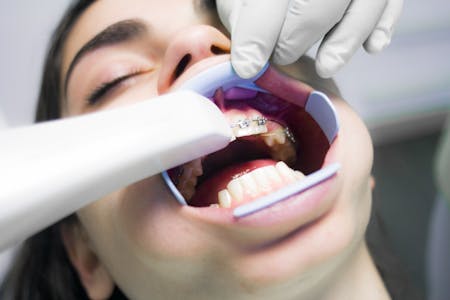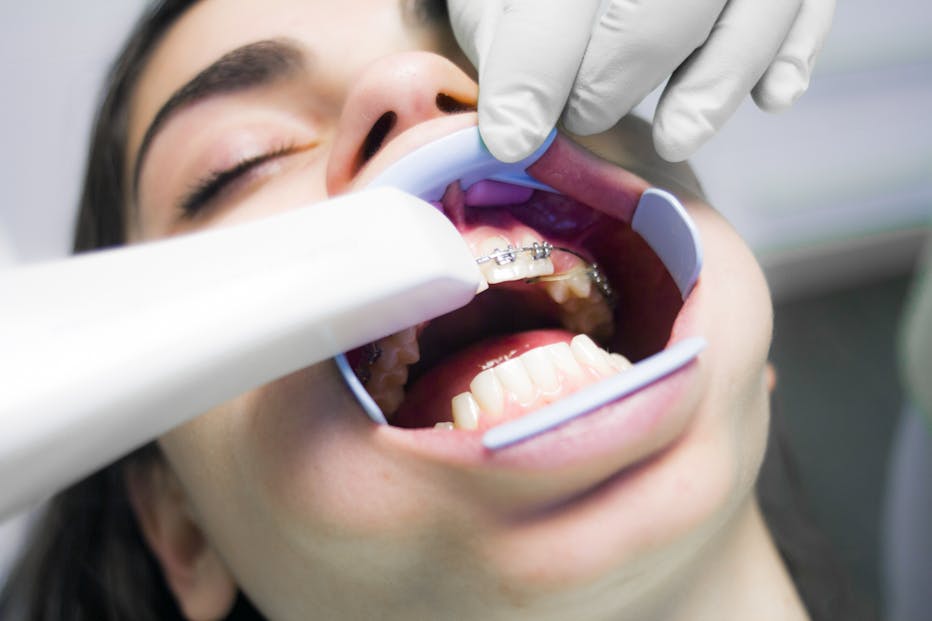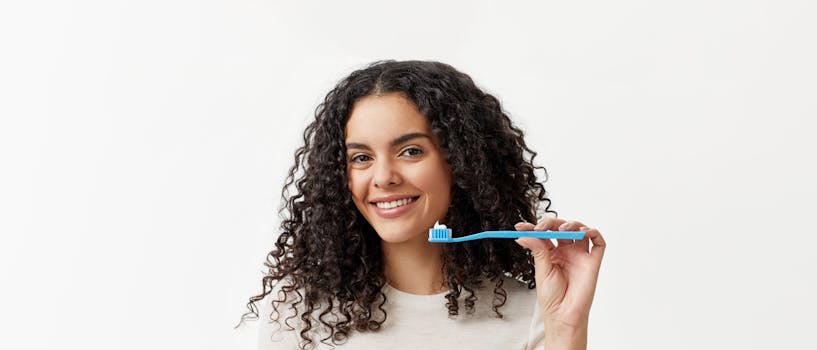Children's dental care: Tips for healthy teeth in children
Dental health is an aspect of overall health that is often overlooked, especially in children. We know that a healthy diet and regular exercise are important, but we often forget the role that dental care plays in maintaining health. That's why it's important to take proper care of teeth, even in childhood, and to get children used to good, thorough dental hygiene at a young age. In this article you will find out how to do this best!



- The importance of children's dental care
- The role of baby teeth
- When should my child start using a toothbrush?
- How do I choose the right toothbrush for my child?
- The right toothpaste for your child
- The Proper Teeth Brushing Method
- When to take your child to the dentist
- Optimal oral hygiene with ALPINE WHITE
The importance of children's dental care
The importance of children's dental care cannot be overstated, as it lays the foundation for a lifetime of good oral health. Pediatric dentistry plays a crucial role in ensuring that children receive the specialized care they need from an early age. From routine oral check-ups to preventive treatments and education, pediatric dentists are equipped to address the unique dental needs of children, including those with special needs. Accessibility is another vital aspect of children's dental care, as every child should have access to quality oral healthcare regardless of their background or circumstances. By making dental services accessible and affordable, we can promote better oral health outcomes for all children, including adolescents. Investing in children's dental care not only improves their oral health but also contributes to their overall well-being, setting them on a path towards a lifetime of healthy smiles. The first teeth when a baby is born, its teeth have not yet broken through. But already in the first months of life, the teeth start to grow and erupt. These first teeth to erupt are also called milk teeth. As mentioned before, these first milk teeth are important for the later development of the teeth and should therefore be well cared for.
The role of baby teeth
The milk teeth have several important functions:
- They help the baby to chew and swallow food.
- They are important for speech development.
- They ensure that the jawbone and gums develop properly.
- They serve as placeholders for the permanent teeth later on.
That is why it is important to take good care of the milk teeth. This includes parents making sure that the baby does not consume drinks or foods that are too hot, too cold or too sweet, as these can attack the tooth enamel. Enamel is the outermost layer of the tooth and protects it from decay and other damage. This is why it is very important to preserve tooth enamel.
When should my child start using a toothbrush?
It is recommended by dentists and orthodontics that parents provide their children with a toothbrush from the time their first tooth erupts. As soon as the first little tooth is visible, it can already be attacked by bacteria that can cause tooth decay. Therefore, it is important for parents to start caring for their child's teeth early.
Most children have all their milk teeth by the age of 2-3 years. At this time, parents should start teaching their child how to brush their teeth properly. However, until the child is able to do this, parents should take time to brush their child's teeth thoroughly twice a day.
How do I choose the right toothbrush for my child?
Choosing the right toothbrush for your child can be a difficult decision. There are many different types of children's toothbrushes from many different providers, varying in size, shape and hardness. Some also have additional features such as music or fun designs to make brushing more interesting for children. However, it is important to note that the effectiveness of the toothbrush does not depend on these additional features, but on the quality of the bristles and the size of the brush.
A child or baby toothbrush usually has a smaller brush head and softer bristles than an adult toothbrush. This makes it easier to clean your child's teeth and gums without hurting them. It is important to choose a toothbrush with soft bristles to protect your child's gums.
An electric toothbrush can also be a good choice as it can make brushing easier. Many children find it fun to brush with an electric toothbrush, which can help them brush their teeth longer and more thoroughly.
If you choose a manual toothbrush, make sure it fits comfortably in your child's hand and that the brush head is small enough to reach all the teeth.
It is important to choose a toothbrush that is suitable for your child's age and needs. Below is a brief overview of how to choose the best toothbrush for your child depending on their age:
At 0-2 years old: As soon as baby teeth appear, extra soft, small toothbrushes or toothbrush fingerlings are ideal to protect sensitive gums.
At 2-4 years old: At this stage, toothbrushes with thick handles that children can control well are suitable. A slim, padded brush head and a mouth shield help to reach all teeth safely.
At 5-7 years old: Bristles that are slightly longer and harder are used here to reach the back molars. An easy-to-grip handle is still important.
From 8 years old: The toothbrush should now have bristles of different lengths to reach all areas of the dentition. The edge bristles should be soft, the other bristles harder.
The right toothpaste for your child
Choosing the right toothpaste for children is also an important aspect of children's dental care. There are a few factors to consider in order to make the best possible choice. First of all, the toothpaste should take into account the age of the child. For toddlers under the age of two, use a toothpaste that is specially formulated for their age and has a low fluoride content. This will protect their still-sensitive baby teeth from plaque and decay while they get used to brushing regularly. For older children aged two to six years, a toothpaste with a higher fluoride content can be used to improve protection against caries bacteria. It is important to use the children's toothpaste only in a pea-sized amount and to make sure that the child spits out the foam and does not swallow it. A child-friendly toothpaste with a pleasant taste and a fun design can also help to make brushing more attractive for children. Again, however, the effectiveness of the toothpaste should not be disregarded.
The Proper Teeth Brushing Method
Teaching children the correct method to brush their teeth is an integral aspect of preventive care that lays the foundation for lifelong dental health. The brushing process should be thorough yet gentle, covering all surfaces of each tooth. Start the process by guiding your child to hold the toothbrush at a 45-degree angle towards the gumline.
Using gentle, circular motions, guide them to brush the outer surfaces of each tooth. This technique helps in effectively dislodging any food particles and plaque build-up. Be sure to give attention to the back teeth, which can often be neglected.
Next, move on to the inner surfaces of the teeth. Most children find this part a bit tricky, but with patience and practice, they will master it over time. Lastly, don't forget to brush the flat, chewing surfaces of the teeth where food particles often reside.
It's crucial to instill the habit of brushing twice daily: once in the morning and once before bed. Up until they're about 7-8 years old, parents should assist their children with brushing to ensure the process is done correctly.
During the first visit and subsequent visits to an orthodontist, children can learn and refine their brushing techniques. Testimonials from other parents can provide unique insights and practical tips on making the brushing routine a more enjoyable and effective experience for children. Remember, regular and proper brushing not only keeps cavities at bay but also fosters a confident and radiant smile.
When to take your child to the dentist
The American Academy of Pediatric Dentistry recommends scheduling your child's first dental visit within six months of the emergence of their first tooth, but no later than their first birthday. This early introduction aids in building a positive dental experience, setting a precedent for future visits. Regular oral health check-ups at the dental office or in one of our ALPINE WHITE Studios are essential for preventing common dental problems, such as cavities that may require fillings. For young patients, these regular visits also help in identifying any potential issues early, ensuring timely intervention. However, if your child experiences a dental emergency, such as severe toothache or a broken tooth, it's imperative to arrange a dental visit immediately to address the issue and mitigate any discomfort.
Optimal oral hygiene with ALPINE WHITE
To ensure optimal oral health at any age, we recommend regular oral health check-ups and dental hygiene treatments at our ALPINE WHITE studios. Our experienced experts offer treatments that minimise the risk of tooth decay and other dental diseases.
In addition, our dental care products, such as our toothpastes and gentle toothbrushes, will help you to keep your teeth healthy and white in the long term.


